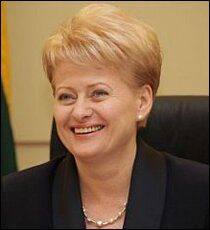Другие материалы рубрики «English»
-
 New Belarus democracy reauthorization act submitted to US House of Representatives
New Belarus democracy reauthorization act submitted to US House of Representatives
A bill extending the Belarus Democracy Act for 2011 and 2012 has been submitted to the US House of Representatives... -
 Post-election protester gets four-year prison sentence
Post-election protester gets four-year prison sentence
A district judge in Minsk on Thursday sentenced a young opposition activist, Vasil Parfyankow, to four years in a high-security correctional institution for taking part in a post-election protest...
- Malady Front Deputy Chairperson Anastasiya Palazhanka released on recognizance
- Prosecutor demands six year in prison for Vasil Parfyankow
- Belarus plans to import 26 million tons of oil this year, says first deputy prime minister
- Visegrad Group condemns post-election crackdown in Belarus
- Speaker of US House of Representatives meets with Belarusian opposition activists
- Vice premier criticizes Samand cars assembled in Belarus
- Government falling behind plan to sell shares in new stock corporations, official says
- Books devoted to Belarusian writer Karatkevich presented at Minsk Book Fair
- Experts criticize trials of post-election protesters as falling short of fundamental standards
- Danish-born business professional Michael Bang arrives in Minsk to conduct seminar
English
Lithuanian president voices support for EU travel sanctions against Belarusian officials
 Lithuania supports the European Union’s decision to impose an entry ban on a number of Belarusian officials but avoid introducing economic sanctions against the country, Lithuanian President Dalia Grybauskaite said at a meeting with visiting US congressmen in Vilnius on February 4.
Lithuania supports the European Union’s decision to impose an entry ban on a number of Belarusian officials but avoid introducing economic sanctions against the country, Lithuanian President Dalia Grybauskaite said at a meeting with visiting US congressmen in Vilnius on February 4.
Ms. Grybauskaite emphasized the importance of facilitating EU visa rules for Belarusian citizens as the best means of demonstrating the people of Belarus the benefits of democracy and free society, according to the Lithuanian president’s press office.
Ms. Grybauskaite described the United States as Lithuania’s “key ally and strategic partner within NATO.”
The meeting also focused on Lithuania’s chairmanship of the OSCE, the most recent military treaty between the United States and Russia, and Lithuania’s contribution to the NATO contingent in Afghanistan.
The European Union on Monday imposed asset freezes and travel bans on 158 Belarusian government officials and other individuals who are deemed involved in election fraud and a post-election crackdown on political opponents.
On the same day, Washington expanded the list of Belarusian officials barred from the country's territory and reintroduced its ban on transactions with AAT Lakafarba, a paint and varnish company in Lida, and AAT Polatsk-Shklovalakno, a glass fiber manufacturer in Polatsk, for US persons.
***
Lithuania will continue actively supporting civil society in Belarus, Foreign Minister Audronius Azubalis said at an international conference in Vilnius on February 4.
“Vilnius is the closest capital to Minsk, and this circumstance creates great opportunities for Belarusian non-governmental organizations and civil society activists to set up and work from a distance, implementing various initiatives. Lithuania has consistently supported the Belarusian civil society and will certainly continue to do so in the future,” the Lithuanian foreign ministry’s press office quoted Mr. Azubalis as saying.
The minister stressed that support for Belarusian civil society must be more visible and effective, which he said would create a favorable environment for true democratic changes in the country. He said that the Democracy and Development Assistance Fund, established in 2007 to provide support to persecuted people in Belarus, would resume its activities.
Lithuania is ready to cooperate with other countries in implementing joint programs on Belarus, join donors’ efforts and consistently aim for better results, he said.
Mr. Azubalis spoke about the January 31 meeting of the EU foreign ministers that resulted in travel and asset freeze sanctions against certain Belarusian officials.
He also noted that Vilnius wants the EU to address the need to facilitate Schengen visa formalities for Belarusian citizens and start talks on the subject in the near future.
Mr. Azubalis emphasized the increased significance of Vilnius-based European Humanities University, describing the school in exile as one of Lithuania’s main directions of support for Belarusian youth.
“The EHU activities will have to be strengthened, especially if there are new expulsions of students and teachers from Belarusian universities,” he was quoted as saying.
The Lithuanian minister called on Belarus to maintain closer cooperation with the OSCE Office for Democratic Institutions and Human Rights and the OSCE media freedom watchdog. He expressed hope that the Belarusian authorities would reverse their decision to close down the OSCE Office in Minsk.
The February 3-4 conference, which addressed international policies toward Belarus, had been organized by the Eastern Europe Studies Centre in cooperation with the Konrad Adenauer Foundation, the National Endowment for Democracy, and Lithuania’s Seimas (parliament).




В настоящее время комментариев к этому материалу нет.
Вы можете стать первым, разместив свой комментарий в форме слева